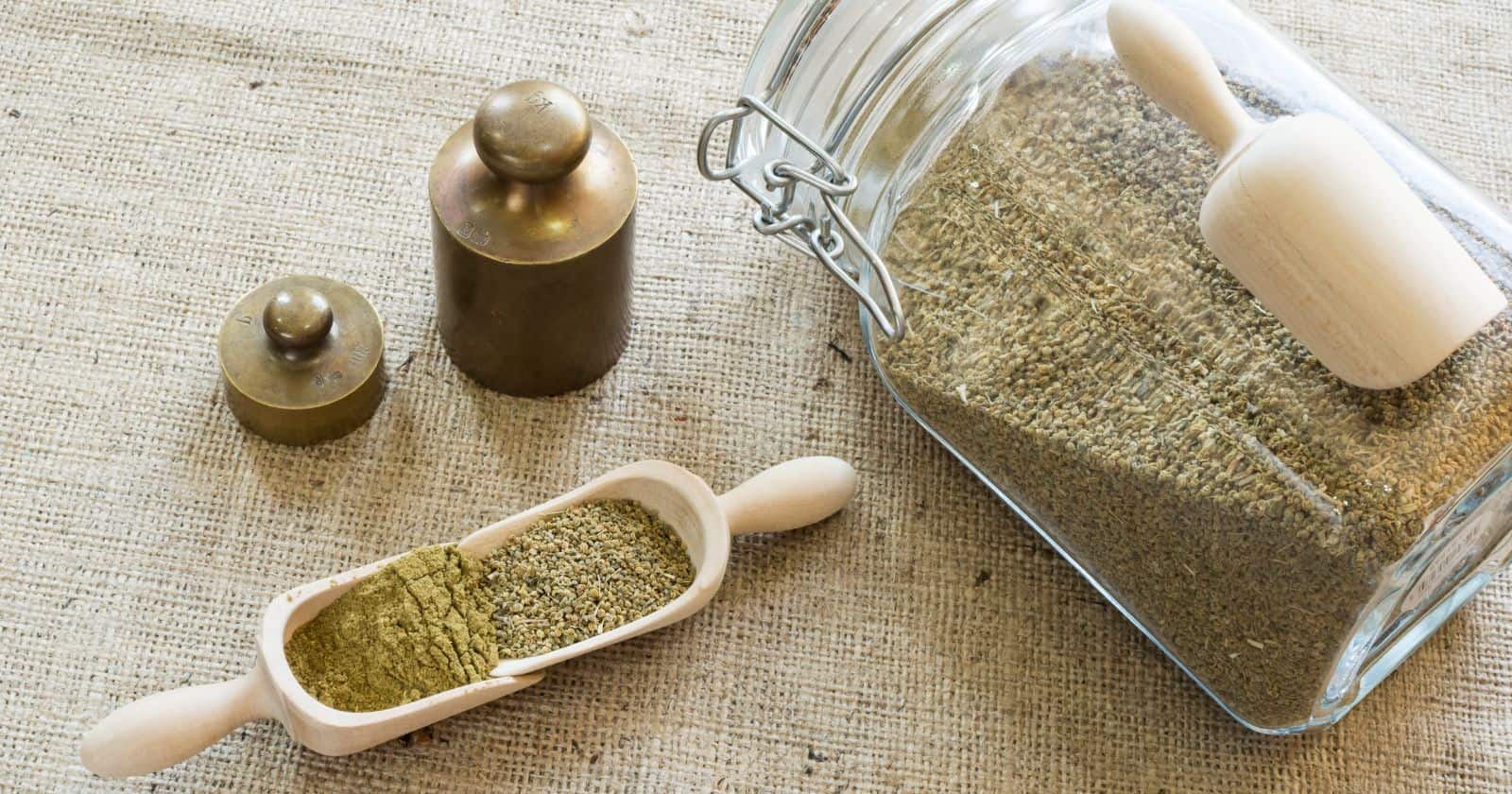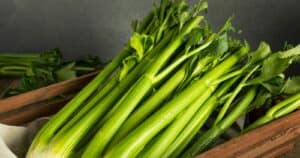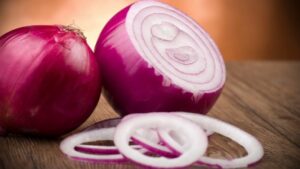Celery seeds are so much more than a simple seasoning.
Though usually found in any cook’s
Who knew one little seed had such amazing potential?
Who can guess this powerful yet versatile seed’s connection to the popular veggies in household fridges?
Celery seeds have a bitter yet warm flavor profile, with an almost anise quality due to certain aromatic oils that give them a unique taste.
But celery seeds’ use as a medicinal herb goes much further than its flavor profile.
Historically and today, this great seed has different properties that give it healing powers for various illnesses and ailments.
From relief for colds and fevers to helping reduce headaches or muscle pains, the power of celery seeds truly stands out from the crowd!
What Are Celery Seeds And How Are They Different From Celery
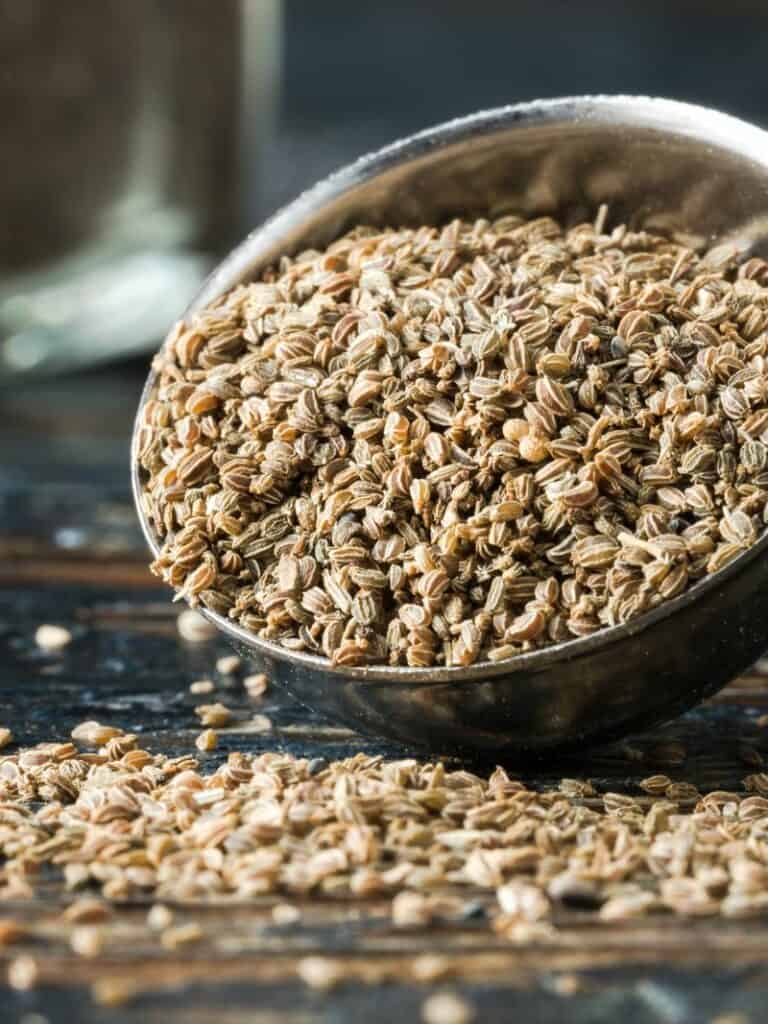
Celery seeds are one of the most versatile kitchen ingredients that you can find. These tiny, nutrient-packed seeds contain essential minerals like calcium, manganese, and iron.
Plus, they’re low in calories and contain equal parts of carbs, protein, and fat. It’s no wonder why celery seed is so popular with health-conscious cooks.
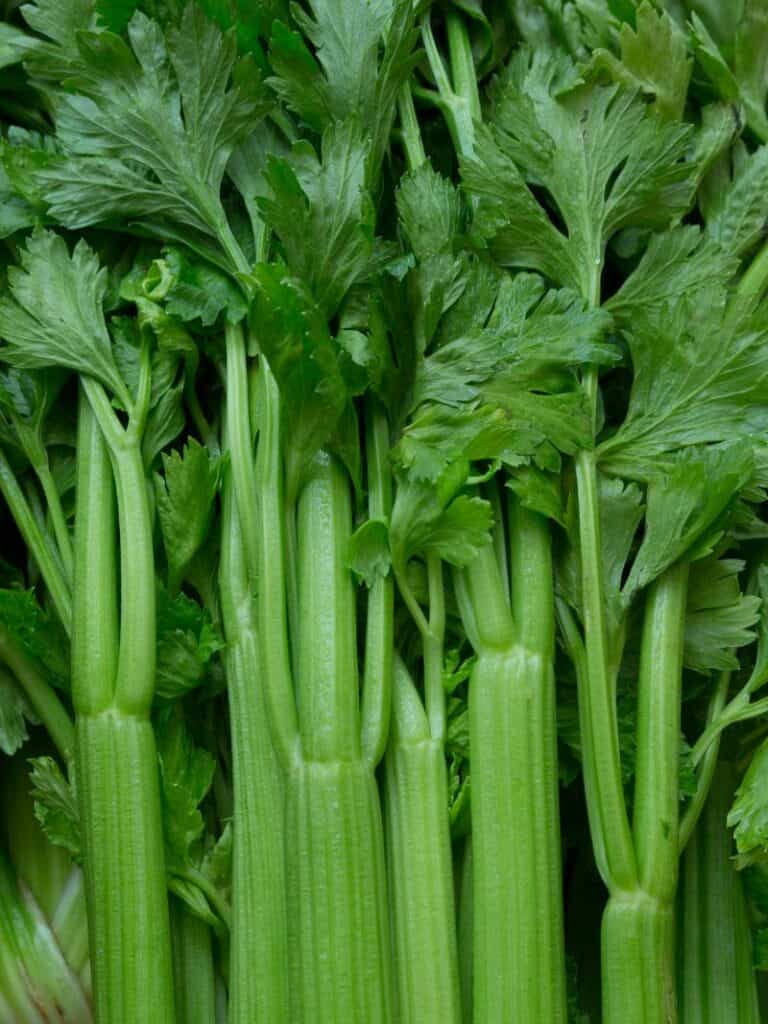
Now that we’ve gone over what these tiny seeds are, let’s talk about the difference between celery seeds and stalks of celery.
While the two are part of the same plant family, they have different flavor profiles and uses. The seeds are small but mighty – adding an aromatic punch to dishes.
On the other hand, fresh stalks provide a crunch to salads or stir-fry dishes and are a delicious snack when dipped in hummus or ranch dressing.
Flavor Profile Of Celery Seeds Aromatic Bitter And Warm
Celery seed is an earthy, grassy, and bitter aromatic, often used as a
Interestingly, Celery seed was initially popular among early North Americans to flavor pickles.
Today, most celery seed comes from China, but India and France are significant producers too.
Medicinal Properties Of Celery Seeds Ancient And Modern Uses For This Herb
The health and medicinal benefits of celery seeds have been known for millennia and are still just as relevant today as when the ancient Greeks and Romans used them for adding flavor to food.
Native to parts of the Mediterranean region and the Middle East, celery seeds became most notably used in Chinese medicine centuries ago due to their healing properties.
Celery can help support digestion, ease pain and swelling in arthritic joints, reduce bloating, reduce ulcers, fight inflammation, support heart health, and help with various other conditions.
Within many modern-day herbal preparations, celery seeds are highly valued due to their various medicinal properties, such as:
- antibacterial
- antioxidant
- anti-inflammatory
- diuretic
- hypotensive (low blood pressure)
- carminative (relieves bloating)
- sedative (calming)
- antispasmodic (prevents spams)
- purgative (cleansing digestive system)
- detoxifier (removes toxins from the body,
- anti-carcinogenic (anti-cancerous)
- digestive activities
Such profound powers! Plus, they can be used as an insecticide! We have known for centuries that celery is one of the essential vegetables in the Apiaceae family.
Culinary Uses For Celery Seeds Recipes And Dishes That Feature This Spice
Celery seeds have become an everyday staple in our modern kitchens.
You can mix whole celery seeds into a rub for grilled chicken, sprinkle ground celery seed over shrimp or lobster salad, dust it on deviled eggs, or even whisk whole celery seeds into a salad dressing.
Have you ever had a Bloody Mary? Yes, you guessed it: they often use whole celery seeds to season their drinks!
And don’t forget pickled vegetables — celery is essential in the brine made for them with its delightful flavor.
Here are a few savory dishes that feature celery seeds:
Coleslaw
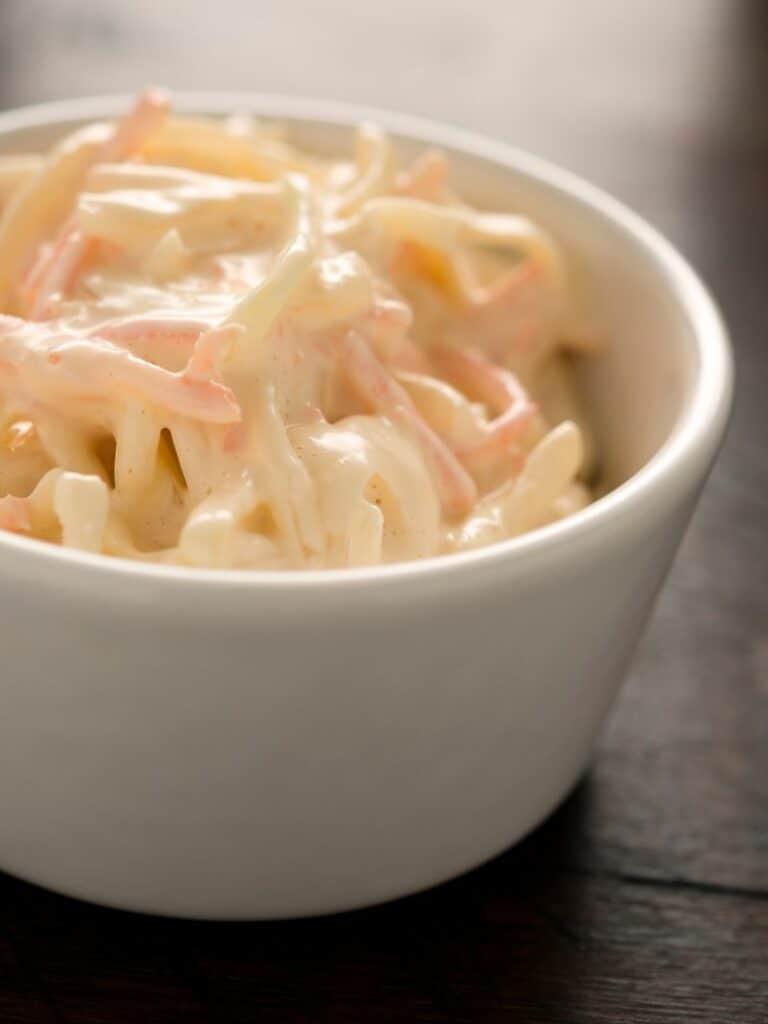
Celery seeds are a classic ingredient in coleslaw and add a subtle yet distinct flavor that pairs perfectly with the other ingredients.
Pickling
Celery seeds are a common ingredient in pickling spices and can add a savory, slightly bitter flavor to pickled vegetables like cucumbers, carrots, and beets.
Barbecue sauce
Celery seeds are a key ingredient in many homemade barbecue sauce recipes, adding a savory and slightly bitter flavor that balances the sauce’s sweetness.
Meat rubs
Celery seeds can be used in meat rubs to add a savory flavor that complements the other spices and herbs. They pair well with smoked paprika, cumin, and garlic.
Potato salad
Like coleslaw, celery seeds are a classic ingredient in potato salad. They add a unique flavor that complements the other ingredients, like hard-boiled eggs, onion, and mayonnaise.
Baked beans
Celery seeds are a common ingredient in homemade baked beans, adding a savory flavor that pairs perfectly with the sweetness of the beans and brown sugar.
Sauerkraut
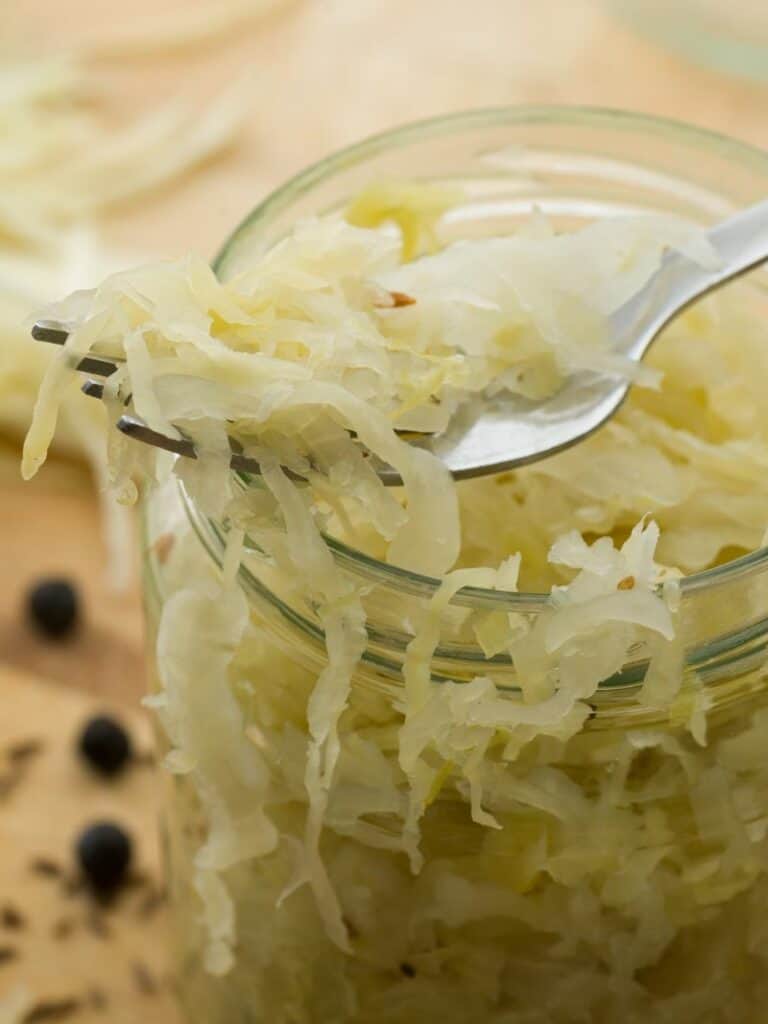
Celery seeds are often used in homemade sauerkraut recipes to add a unique flavor that complements the sourness of the cabbage.
Where to Buy Celery Seeds?
Celery seeds can be found in most grocery stores and supermarkets in the
In addition, online retailers like Amazon and specialty
When shopping for celery seeds, check the expiration date and choose a brand known for high-quality spices.
Celery grew wild in Sicily, was carried north as a medicinal plant, and, by the 17th century, was eaten in France and Italy as a salad.
Gardeners realized planting it late yielded longer, milder stalks that survived winter.
Today, our fragrant Celery Seeds are delicious in slaw, essential for pickles, and a pleasant addition to salad dressings.
Celery Seeds Substitutes
If you don’t have celery seeds on hand or are looking for a different flavor, several substitutes can be used. Here are a few options:
Celery salt
Celery salt is a popular
Caraway seeds
Caraway seeds have a similar flavor profile to celery seeds, with a slightly sweet and nutty taste. They can be used instead of celery seeds in coleslaw or potato salad recipes.
Dill seeds
Dill seeds have a slightly sweeter and less bitter flavor than celery seeds but can be used in place of celery seeds in recipes like pickling or sauerkraut.
Cumin
Cumin has a slightly smoky and earthy flavor that can be used instead of celery seeds in meat rubs or barbecue sauce.
Coriander
Coriander has a slightly sweet and citrusy flavor that can be used instead of celery seeds in coleslaw or pickling.
Mustard seeds
Mustard seeds have a strong and slightly bitter flavor that can be used instead of celery seeds in meat rubs or barbecue sauce.
When substituting one

